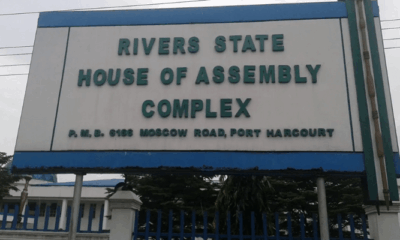Forgotten Dairies
Why Do Politicians Raise Their Pay Overnight While ASUU Still Struggles Over 2009 Agreement? -By Isaac Asabor
Until Nigerians demand real accountability, this farce will continue. ASUU will keep revisiting the ghost of 2009, students will keep losing years to strikes, and politicians will keep smiling to the bank after every budget session.

In Nigeria, the hypocrisy of governance is no longer hidden, it is lived reality. Politicians can, in one sitting, award themselves billions of naira in fresh salaries and allowances, yet the Academic Staff Union of Universities (ASUU) must shut down campuses, year after year, simply to remind government to honor an agreement signed as far back as 2009.
Let that sink in: a 2009 agreement. For more than a decade, ASUU has been locked in a cycle of warnings, ultimatums, strikes, and negotiations over the same issues, funding for universities, improved welfare for lecturers, and revitalization of tertiary education. Successive governments have signed communiqués, set up committees, and made empty promises, but the agreements remain largely unimplemented. Meanwhile, lawmakers have reviewed and padded their pay packets several times within the same period, without delay, without agitation, without shame.
This is the stark double standard: ASUU has been trapped in a time loop since 2009, fighting for what was promised. Politicians, by contrast, never wait for promises. They simply approve, collect, and move on.
Ostensibly worsening the crisis, the Federal Government, through Dr. Tunji Alausa, has denied claims that it signed agreements with the Academic Staff Union of Universities (ASUU), insisting that the documents being referenced were merely proposals. To me, even if no agreement was signed, can’t the federal government do the needful in order not to further disrupt academic cycles across universities in Nigeria?
Without a doubt, the structural bias explains part of it. The Revenue Mobilisation Allocation and Fiscal Commission (RMAFC) handles salaries of political office holders. There is no bargaining table, no ultimatum, and no risk of sanctions. Adjustments are dressed up as “statutory reviews” and slipped into budgets. For ASUU, however, the only bargaining chip is withdrawal of labour. They must halt the education of millions of Nigerian youths just to get attention.
Add to this the secrecy of political compensation. While ASUU’s pay is public, modest, and often delayed, politicians gorge themselves on hidden perks, wardrobe allowances, vehicle loans, constituency funds, security votes, estacodes, and other shadow emoluments. Their “basic salaries” are a fraction of what they actually take home. When ASUU agitates, its affiliates are demonized as “selfish” and “strike-happy.” When politicians help themselves, it is whitewashed as “cost of governance.”
This asymmetry of power is glaring. ASUU must beg and strike; politicians legislate for themselves. ASUU is teargassed when it protests; politicians enjoy police escorts when padding their allowances. Who has ever seen security forces storm the National Assembly to stop lawmakers from approving new perks? It never happens, because those who wield the baton cannot be flogged with it.
Citizen fatigue worsens the imbalance. Nigerians are weary from subsidy removals, inflation, unemployment, and poverty. Many cannot afford the cost of sustained protests. So while ASUU sacrifices its reputation, salaries, and students’ future to force government to listen, politicians enrich themselves without a ripple of resistance.
The hypocrisy is staggering. From 2009 till date, ASUU has embarked on over a dozen nationwide strikes, shutting down public universities for a cumulative period that runs into years. Generations of students have lost academic time, some permanently derailed. Yet, within the same 14-year window, lawmakers have revised their allowances multiple times, governors have fattened their security votes, and ministers have enjoyed fleets of cars, estacodes, and foreign trips, all at the taxpayers’ expense.
If Nigeria is to reclaim sanity, urgent reforms are needed. First, transparency: every kobo of politicians’ pay, allowances, and constituency funds must be published and audited openly. If ASUU’s meagre salaries are public, so must be the bloated packages of lawmakers. Second, parity: just as ASUU’s demands undergo years of negotiation, political pay adjustments must be subjected to the same rigorous, participatory scrutiny. Third, fairness: no politician’s pay should rise except it is pegged to economic indicators such as GDP growth, inflation, and the national minimum wage. If ASUU must tie its demands to the health of education, politicians must tie theirs to the health of the economy.
The bitter truth is this: ASUU has been chained to a 2009 agreement that government refuses to honour, while politicians never wait for agreements, they legislate their luxury and grab it overnight. One class is compelled to strike endlessly; the other rewards itself endlessly.
Until Nigerians demand real accountability, this farce will continue. ASUU will keep revisiting the ghost of 2009, students will keep losing years to strikes, and politicians will keep smiling to the bank after every budget session.
The real question is no longer why this happens, we already know why. The real question is: how much longer will Nigerians allow ASUU to be chained to 2009 while politicians live in 2023 on the backs of everyone else?
























